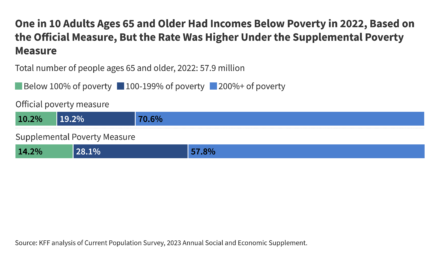Today’s early morning highlights from the major news organizations.
KFF Health News:
Promising Better, Cheaper Care, Kaiser Permanente’s National Expansion Faces Wide Skepticism
As regulators review Kaiser Permanente’s proposed acquisition of a respected health system based in Pennsylvania, health care experts are still puzzling over how the surprise deal, announced in April, could fulfill the managed care giant’s promise of improving care and reducing costs for patients, including in its home state of California. KP said it would acquire Danville, Pennsylvania-based Geisinger — which has 10 hospitals, 1,700 employed physicians, and a 600,000-member health plan in three states — as the first step in the creation of a new national health care organization called Risant Health. Oakland-based Kaiser Permanente said it expects to invest $5 billion in Risant over the next five years, and to add as many as six more nonprofit health systems during that period. (Meyer, 8/15)
KFF Health News:
Epidemic: Zero Pox!
In 1973, Bhakti Dastane arrived in Bihar, India, to join the smallpox eradication campaign. She was a year out of medical school and had never cared for anyone with the virus. She believed she was offering something miraculous, saving people from a deadly disease. But some locals did not see it that way. (8/15)
Politico:
Montana Judge Sides With Youth Activists In Historic Climate Trial
A Montana judge on Monday found that the Treasure State is violating its residents’ right to a clean environment — delivering a major victory to the 16 kids, teens and young adults behind the first U.S. youth-led climate trial. Judge Kathy Seeley of the 1st District Court in Montana ruled that state lawmakers flouted Montana’s constitutional right to a “clean and healthful environment” when they passed a law barring agencies from considering the climate effects of fossil fuel projects. (Clark, 8/14)
The Washington Post:
Judge Rules In Favor Of Youths In Landmark Montana Climate Trial
The Montana case will face an appeal to the state Supreme Court, Emily Flower, a spokesperson for Montana Attorney General Austin Knudsen (R), confirmed Monday. She decried the ruling as “absurd” and said Montanans cannot be blamed for changing the climate. … Despite the track record of dismissals for youth-led climate cases in the United States, experts said the Montana youths had an advantage in the state’s constitution, which guarantees a right to a “clean and healthful environment.” Montana, a major coal producer, is home to the largest recoverable coal reserves in the country. The plaintiff’s attorneys say the state has never denied a permit for a fossil fuel project. (Selig, 8/14)
The Hill:
DOJ Blasts Industry Attempt To Delay Medicare Drug Price Negotiations
The Department of Justice (DOJ) lambasted the Chamber of Commerce’s request for an injunction to block the Medicare drug price negotiation program, arguing in court filings that the organization had no standing to file the lawsuit and that pausing the program would harm the public. The rebuttal comes weeks before the federal government is expected to name the first 10 drugs chosen for price negotiation. (Choi, 8/14)
Modern Healthcare:
IRA Energy Grants, Tax Incentives That Could Save Healthcare Billions
The Inflation Reduction Act of 2022 provides billions of dollars in direct funding and tax incentive opportunities that health systems can use to finance climate resiliency and renewable energy infrastructure projects. The funding is still becoming available, with several tax and grant opportunities rolling out this year. Significantly, the Inflation Reduction Act enables tax-exempt entities, such as nonprofit organizations and local governments, to receive direct payments for qualified investments. The window to take advantage of certain cost-sharing arrangements will close at the end of 2024. (Hartnett, 8/14)
Axios:
How Medicaid Disenrollments Could Squeeze Some Insurers
Big Medicaid-managed care plans that serve the majority of the program’s beneficiaries are seeing membership slip as more states redetermine program eligibility — a trend that could eat into some of the insurers’ bottom lines, according to Georgetown University’s Center for Children and Families. If the remaining Medicaid enrollees as a group are sicker overall, plans may have to eat some of the higher cost of care unless states adjust their payment rates upward. (Bettelheim, 8/14)
Stat:
Patient Advocates Sound Warning On FDA Proposal On Salt Intake
Patient advocates are warning that a recent proposal from the Food and Drug Administration meant to reduce consumers’ salt intake could inadvertently kill those with kidney disease, particularly Black Americans. (Florko, 8/15)
The Wall Street Journal:
More Americans Are Ending Up Homeless—At A Record Rate
The U.S. has seen a record increase in homeless people this year as the Covid-19 pandemic fades, according to a Wall Street Journal review of data from around the country. The data so far this year are up roughly 11% from 2022, a sharp jump that would represent by far the biggest recorded increase since the government started tracking comparable numbers in 2007. The next highest increase was a 2.7% jump in 2019, excluding an artificially high increase last year caused by pandemic counting interruptions. (Kamp and Najmabadi, 8/14)
CIDRAP:
Case Report Details ‘Blue Legs’ In Long-COVID Patient
Acrocyanosis, venous pooling of blood in the legs that causes them to turn blue, may be yet another symptom of long COVID, according to a case report published in The Lancet. The case report features a 33-year-old man who for 6 months experienced blue legs after 10 minutes of standing, accompanied by a heavy, itching sensation. The legs returned to a normal color after 2 minutes of lying down. (Soucheray, 8/14)
Milwaukee Journal Sentinel:
Everybody Poops. Wisconsin Is A National Leader In Using It To Monitor Public Health
In September 2020, the height of the COVID-19 pandemic, public health officials and researchers started hunting for signs of the virus’ spread in an unexpected place: our poop. Samples of municipal wastewater provided a wealth of information that ― combined with diagnostic lab testing, hospitalization rates, and other disease surveillance data ― could warn officials of a rise in cases, help them track evolving forms of the virus and inform public health policy. (Shastri, 8/14)
ProPublica:
Fees For Electronic Payments Eat Into Health Care Budgets
Such fees have become routine in American health care in recent years, according to an investigation by ProPublica published on Monday, and some medical clinics say they’ll seek to pass those costs on to patients. Almost 60% of medical practices said they were compelled to pay fees for electronic payment at least some of the time, according to a 2021 survey. With more than $2 trillion a year of medical claims paid electronically, these fees likely add up to billions of dollars that could be spent on care but instead are going to insurers and middlemen. (Podkul, 8/15)
The Star Tribune:
Messaging With Your Mayo Doctor Could Soon Cost You
Mayo Clinic will start charging patients for some online messaging exchanges with their doctors, closing an increasingly popular backdoor route to free medical advice. Patients will be warned, starting Friday, that their messages could result in charges of up to $50 if Mayo doctors respond with diagnostic information. The Rochester-based health care system announced the switch Monday in response to a recent 132% increase in patient messages, which sometimes averted the need for billable clinic visits. (Olson, 8/14)
The Washington Post:
The Real Reason The Highest-Paid Doctors Are In The Dakotas
The best-paid doctors in America work in the Dakotas, where they averaged $524,000 (South) and $468,000 (North) in 2017 in their prime earning years, including business income and capital gains. That’s well above the already astonishing $405,000 the average U.S. doctor made in the prime earning years, defined here as 40 to 55. (Van Dam, 8/11)
Stat:
Not-For-Profit CommonSpirit Health Paid Its CEO $35 Million In 2021
CommonSpirit Health, the massive not-for-profit health system formed through a 2019 merger, paid its former CEO $35.5 million in 2021, the latest year for which data is available. The size of Lloyd Dean’s pay package is likely to reignite questions about health system CEO pay, especially at tax-exempt organizations. (Bannow, 8/14)
Modern Healthcare:
AdventHealth-MultiPlan Lawsuit Emphasizes Out-Of-Network Pay Fight
AdventHealth sued MultiPlan for allegedly colluding with other insurers to shortchange providers for care offered outside of an insurance company’s network, the latest example of the litigious relationship between health systems, physicians and insurers. … AdventHealth alleged that nationally, MultiPlan underpays healthcare providers $19 billion a year. The system seeks damages for the alleged underpayments and lost revenue amounting to “hundreds of millions of dollars.” (Kacik, 8/14)
The Texas Tribune:
UT-Austin And MD Anderson Will Partner To Create A New Cancer Hospital
The University of Texas at Austin and one of the most well-known cancer treatment centers in the world are partnering to build a new $2.5 billion medical hub geared toward serving Central Texas. The University of Texas System Board of Regents Chair Kevin Eltife announced Monday plans to create the new facility in partnership with the MD Anderson Cancer Center, the nation’s No. 1 cancer hospital. MD Anderson is part of the university system and has several locations in the Houston area. (Simpson, 8/14)
The Colorado Sun:
Some Colorado Hospitals Continue To Struggle Financially
More than three years after the start of the COVID pandemic upended the hospital business nationwide and more than six months after the budgets at hospitals across Colorado really hit the skids, the financial outlook still has yet to stabilize, according to first quarter financial statements filed with federal regulators. Some large hospital systems, like UCHealth, have returned to profitability, aided in part by a stronger stock market bringing back gains in investment income. Others, though, such as Denver Health, continue to lose money. (Ingold, 8/15)
Modern Healthcare:
CMS Unveils ACO REACH Makeover
The Centers for Medicare and Medicaid Services debuted a slate of changes to ACO REACH on Monday that are designed to boost participation in the value-based care program. The agency’s Center for Medicare and Medicaid Innovation elevated financial reserve requirements and reduced enrollment minimums under the Accountable Care Organization Realizing Equity, Accountability and Community Health, or ACO REACH, program, the office announced via its website. (Tepper, 8/14)
The Wall Street Journal:
Ozempic Settles The Obesity Debate: It’s Biology Over Willpower
Ozempic and similar drugs are transforming the world’s understanding of obesity. It isn’t so much about willpower: It’s about biology. The success of the powerful new class of diabetes and weight-loss drugs shows how important chemistry is to determining a person’s weight. The brain is the body’s chief chemist, regulating appetite and making it difficult for many people to shed pounds and keep them off. The brain determines how much fat it wants people to carry, according to years of research bolstered by the new drugs. (McKay, 8/14)
Reuters:
US FDA Approves Pfizer’s Blood Cancer Therapy
The U.S. Food and Drug Administration on Monday granted accelerated approval to Pfizer’s therapy for treating patients with a type of blood cancer that is difficult to treat, the company said. The health regulator’s decision allows use of the therapy, branded as Elrexfio, in patients with multiple myeloma that is hard to treat or has come back after receiving four or more prior lines of certain classes of treatments. (Satija and Jain, 8/14)
Stat:
Radiation, Mainstay Of Cancer Treatment, Begins A Fade-Out
Every year, doctors get better tools to fight cancer. Engineered cancer-killing cells, immunotherapies, targeted drugs, and more are helping clinicians cure more patients. Increasingly, though, oncologists are trying to use less radiation, long one of the main pillars of cancer therapy. In some cases, they are even keeping certain patients with low-risk tumors off radiation entirely. (Chen, 8/15)
Stat:
BMS, Looking To Build Heart Drug Business, Turns To AI For Diagnosis
As Bristol Myers Squibb works to build its treatment for a heart condition that can cause difficulty breathing into a blockbuster drug, it’s propped up an algorithm designed to help find more people who are affected. (Aguilar, 8/15)
St. Louis Post-Dispatch:
First Robot-Assisted Liver Transplant In U.S. Performed At Barnes-Jewish Hospital In St. Louis
A surgical team from Washington University’s School of Medicine has successfully performed the first robot-assisted whole-liver transplant in the U.S. — and the patient was cleared to get back on the golf course just a month later. The surgery took place in May at Barnes-Jewish Hospital, and the patient — a man in his 60s with liver cancer and cirrhosis due to a hepatitis C infection — has recovered swiftly, according to his doctors. (Vargo, 8/14)
CNN:
‘The Greatest Feeling In The World’: Deep Brain Stimulation Helps Stroke Survivor Regain Independence
Stan Nicholas volunteered to become one of the first people in the world to try to regain his body’s function with the help of a little device planted in his brain and chest that the doctors hoped would stimulate them into action, even the parts of the brain that the stroke seemed to wipe out. (Christensen, 8/14)
The New York Times:
Opioid Settlement Money Is Being Spent On Police Cars And Overtime
After years of litigation to hold the pharmaceutical industry accountable for the deadly abuse of prescription painkillers, payments from what could amount to more than $50 billion in court settlements have started to flow to states and communities to address the nation’s continuing opioid crisis. But though the payments come with stacks of guidance outlining core strategies for drug prevention and addiction treatment, the first wave of awards is setting off heated debates over the best use of the money, including the role that law enforcement should play in grappling with a public health disaster. (Hoffman, 8/14)
San Francisco Chronicle:
Santa Cruz Private Clean-Needle Program Illegally Approved, Court Says
A privately run clean-needle program in Santa Cruz County, aimed at limiting the spread of HIV and other drug-borne diseases, was illegally authorized in 2020 by state health officials who failed to consult with local law enforcement agencies, the program’s chief opponents, a state appeals court ruled Monday. (Egelko, 8/14)
The Texas Tribune:
Texas Lawsuit Tries To Bankrupt Planned Parenthood
For more than a decade, the state has been trying and failing to chase Planned Parenthood out of Texas. Texas restricted and then banned abortion. The state removed Planned Parenthood affiliates from state-funded health programs and turned down federal dollars rather than allow Planned Parenthood to receive them. Planned Parenthood has been cut out of funding for cancer screenings, contraception, HIV prevention and sex education. Despite this concerted effort from the highest levels of state government, Planned Parenthood’s clinic doors have remained open in Texas. (Klibanoff, 8/15)
Dallas Morning News:
Texans Still Getting Abortion Pills By Mail With Out-Of-State Help
A virtual web of reproductive health groups is openly helping Texans circumvent legal and logistical barriers set in place by strict anti-abortion laws, including those that ban shipping abortion medications by mail. With a few clicks of the mouse, Texans seeking abortion pills can view a list of vetted providers, visit virtually with a clinician in Massachusetts and arrange for medication to be sent directly — even though prescribing the pills is illegal in the nation’s second-largest state. (Wolf and Pacheco, 8/14)
Los Angeles Times:
In Beverly Hills, A Dispute Over A Clinic Puts California’s Image As An Abortion Haven To The Test
An abortion provider that planned to open a clinic in Beverly Hills offering procedures beyond 24 weeks of pregnancy is alleging that the city “colluded and conspired” with antiabortion activists to force out the clinic. It gave formal notice Monday of damage claims against local officials. The dispute illustrates that even in the bluest parts of America, abortion rights face serious challenges — especially when it comes to the most controversial procedures. (Jarvie, 8/14)
The 19th:
Veterans Push For IVF Coverage Beyond Heterosexual Married Couples
Amber Bohlman tried almost everything to get pregnant. For five years, she took hormones that gave her headaches. Bohlman underwent three rounds of intrauterine insemination (IUI), in which her partner’s sperm was directly implanted into her uterus. Though Bohlman, who did two tours in Iraq in her 20s, grew increasingly worried that she would run out of chances to get pregnant. Still, there was one method she still hadn’t tried: in vitro fertilization (IVF), which is generally considered to be the most effective form of assisted reproductive technology. (Luthra, 8/14)
AP:
States That Protect Transgender Health Care Now Try To Absorb Demand
States that declared themselves refuges for transgender people have essentially issued an invitation: Get your gender-affirming health care here without fearing prosecution at home. … Already-long waiting lists are growing, yet there are only so many providers of gender-affirming care and only so many patients they can see in a day. For those refuge states — so far, California, Connecticut, Colorado, Illinois, Massachusetts, Maryland, Minnesota, New Jersey, New Mexico, Washington and Vermont, plus Washington, D.C. — the question is how to move beyond promises of legal protection and build a network to serve more patients. (McMillan and Schoenbaum, 8/15)
AP:
More States Expect Schools To Keep Trans Girls Off Girls Teams
As children across the U.S. head back to classes and practices for fall sports, four more states are expecting their K-12 schools to keep transgender girls off their girls teams. Kansas, North Dakota and Wyoming had new laws in place restricting transgender athletes before classes resumed, and a Missouri law takes effect at the end of this month, bringing the number of states with restrictions to 23. (Hanna, 8/14)
Healthline:
New Study Finds 47% of LGBTQ People Experience Medical Gaslighting
New research finds a large number of LGBTQ people say they’ve experienced discrimination and medical gaslighting from healthcare providers. (Mastroianni, 8/13)
Stat:
Long-Term Exposure To Wildfire Smoke Particulates Linked To Dementia
Smoke permeates everything and impacts everyone. The visible stew of carbon and particulates typically from emission sources travels in the air, shrouds buildings, suffocates birds, and penetrates deep into the lungs. Now researchers believe wildfire smoke may impact the brain too. (Tsanni, 8/14)
Storm Center:
Heat Exhaustion Vs. Heat Stroke: Know The Difference
With this dangerous heat wave forecasted to keep smothering the southern U.S. and Florida the next several weeks, it is important to know the key differences between heat-related illnesses. The combination of heat and humidity will result in dangerously high “feels like” temperatures to continue hitting the triple digits. These conditions could prompt significant health risks if precautions are not taken. (Hazel, 8/14)
Indianapolis Star:
Indiana Ranks Among Fattest States, A 9.3B Economic Hit, Study Says
All those extra pounds come at a cost — a $9.3 billion hit to the state’s economy in 2022,or about 2% of the gross domestic product, according to a new report supported by Eli Lilly and Co. London-based GlobalData report finds that in Indiana, where 36.3% of adults self-report as obese and 33.3% overweight, obesity accounts for 69,400 fewer adults in the workforce because of obesity-related unemployment and early deaths. Medical conditions and complications that stem from obesity added up to an extra $1.2 billion in medical spending for employers, the report found. (Rudavsky, 8/15)
Press Association:
Weight Loss Study: Microgreens, Mature Vegetables May Limit Gaining Pounds
Microgreens and mature vegetables may offer different nutrients, but they might both be effective in limiting weight gain, new research suggests. Microgreens – older than sprouts but younger than baby greens – have been touted by some as a superfood, and scientists are aiming to find out if they have earned this reputation, and how they compare with fully grown veg. (Massey, 8/15)
The Boston Globe:
Harvard Art Show Honors Enslaved Women’s Medical Contributions
When Dr. Lucy Lomas learned about the disturbing role of slavery in the origins of her medical specialty, gynecology, she said she felt “heaviness and heartache,” some of which she still carries with her. But she said she also feels a strong drive to create a better system of care for Black women, something that can’t be done without looking to the past. (Mohammed, 8/14)
Bloomberg:
US Women Would Make An Extra $627 Billion If Paid For Caregiving
If women in the US got paid for their caregiving work, they would make an additional $627 billion per year, according to a new analysis. Women average about 52 minutes per day caring for children and other family members, including those outside the home, while men spend about 26 minutes a day on care, an analysis published Monday by the National Partnership for Women & Families, a working families research and advocacy group, shows. Assuming they’d earn the mean wage of $14.55 per hour for child-care workers or home health aides, women would each bring in an extra $4,600 annually if their caregiving work was compensated, while men would receive about $2,300. (Butler, 8/14)
This is part of the Morning Briefing, a summary of health policy coverage from major news organizations. Sign up for an email subscription.




